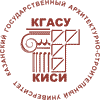About the authors
| First name, Middle name, Last name, Scientific degree, Scientific rank, Current position. Full and brief name of the organization, The organization address. | Yarullina L.R. – candidate of psychological sciences, associate professor E-mail: This e-mail address is being protected from spambots. You need JavaScript enabled to view it Korchagin E.A. – doctor of pedagogical sciences, professor Nigmatulina D.S. – student Kazan State University of Architecture and Engineering The organization address: 420043, Russia, Kazan, Zelenaya st., 1 |
| Title of the article | Educational stress-factors of students of higher education institution and the ways of their prevention and overcoming |
| Abstract. | Examination is defined as a stress factor causing mental tension in students and being the psychoinjuring factor. The stress, which students have, can affect training (acquisition, application and processing of knowledge) that interferes with the academic progress. In certain situations psychological tension can have stimulating value, helping student to mobilize all the knowledge and personal reserves for the solution of the educational tasks set for it. Ways of its decision are covered in professional motivation of students and in introduction in educational process of bases of a healthy lifestyle, training courses, health saving technologies. It is shown that by correctly organized psychological-pedagogical preparation including during examination, there is a productive communication between the teacher and the student which leads to positive results: overcoming, stress removal, opening and understanding of the new parties of own personality, self-assessment increase, expansion of consciousness, outlook and activity prospects, experience of completeness, life saturation, personal growth. |
| Keywords. | Educational stress, resistance to stress, psychological-pedagogical preparation for examinations, emotional pressure. |
| For citations: | Yarullina L.R., Korchagin E.A., Nigmatulina D.S. Educational stress-factors of students of higher education institution and the ways of their prevention and overcoming // Izvestiya KGASU. 2013. №2(24) P.355--1. |















